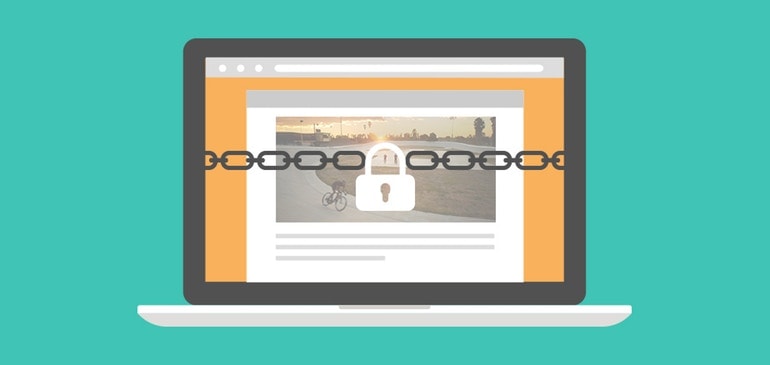While a UX website design which is optimized for mobile that provides useful information to the user is a great way of branding and getting credibility from the audience, however, if proper security is not put in the place which causes a data breach, the audience will lose trust in your brand. Hence, you should give security as much importance as you give to SEO, marketing and web design. You may spend a lot of money setting up the perfect UX website but with no proper security in place, hackers may take down your website causing security issues and stolen customer information which will cause you to lose your business.
The size of your business does not matter, your visitors trust you and give their information to your site. While your site may be in compliance with governmental regulations and requirements like the General Data Protection Requirement (GDPR), which has been put in place to protect the user’s data and the companies to handle it carefully, if you are not implementing security measures to the site then actually you are going against the regulation as well, as the customers have handed you their information to be handled securely which you failed to do. Hence implement these 8 measures on your site to protect user data;
-
Purchase a Good Hosting:
Your website database is stored in a server provided by your hosting company. These servers are located in various regions and controlled and protected by these companies hence you should be careful while choosing a hosting company as their security standards will be the only thing that will protect the data to be stolen from the servers. Good hosting companies provide a variety of services such as 24-hour customer support, constant back-ups, and good security assurance.
While shared hosting can be a cheap option, remember you are sharing one server with many other websites hence any disruption can cause a data breach. It is better to go for an individual hosting space, though it may be costly, but it is much safer to use. Read the reviews of the hosting company before you finalize to purchase from the one.
-
Set Up SSL:
It goes without saying that an SSL certificate is required for a website to function securely as it encrypts the site, protecting data. SSL will create an extra protection layer on the site via encryption so that third parties cannot gain access to your visitors’ information. Adding SSL also improves your site ranking as search engines prefer encrypted sites.
-
Use a CDN
A content delivery service (CDN) should not be confused with the hosting as they work differently. CDN such as Cloudflare helps to deliver your sites content to users across the world faster and in a more secure way as they include additional security features.
-
Install a Firewall
Servers usually have a firewall installed to keep hackers at bay, but many find a way to breach it hence it is a good idea to add a firewall to the site directly for additional security and give it an extra layer of protection.
-
Enforce Stronger Login Settings:
This is something you must be aware of, make sure your login credentials are discreet and that you choose a strong password for it. Keep rotating passwords to be safer and limit login attempts to a set number. Make sure other users are also using a secure way to log in to the site.
-
Clean Up the Spam:
If you are using WordPress, use Akismet plugin to block spam comments on the site which will make sure that spammers do not get to collect more information from the site. Delete the spam folder regularly to clean up your site.
-
Check Plugins:
The most vulnerable component, if you are using a WordPress website, are the plugins you use on the site. While most plugins are reviewed by the WordPress team, they may miss something hence before you download any plugin, check for its reviews and rating, also see the number of installations, that will help you understand if this plugin can be trusted.
-
Disable Front-End Error Reporting:
When your site faces some server errors, it shows the error on your site-path with error information which can be used by the hackers to get information from your site hence you need to disable front-end error reporting to protect any information from your site from getting stolen.
In Conclusion:
If there is any data loss, it would cause huge business losses and you will lose your audience’s trust hence you need to implement all security measures and use only trusted third-party apps to keep user data safe as you cannot afford to lose business due to such mishaps.
